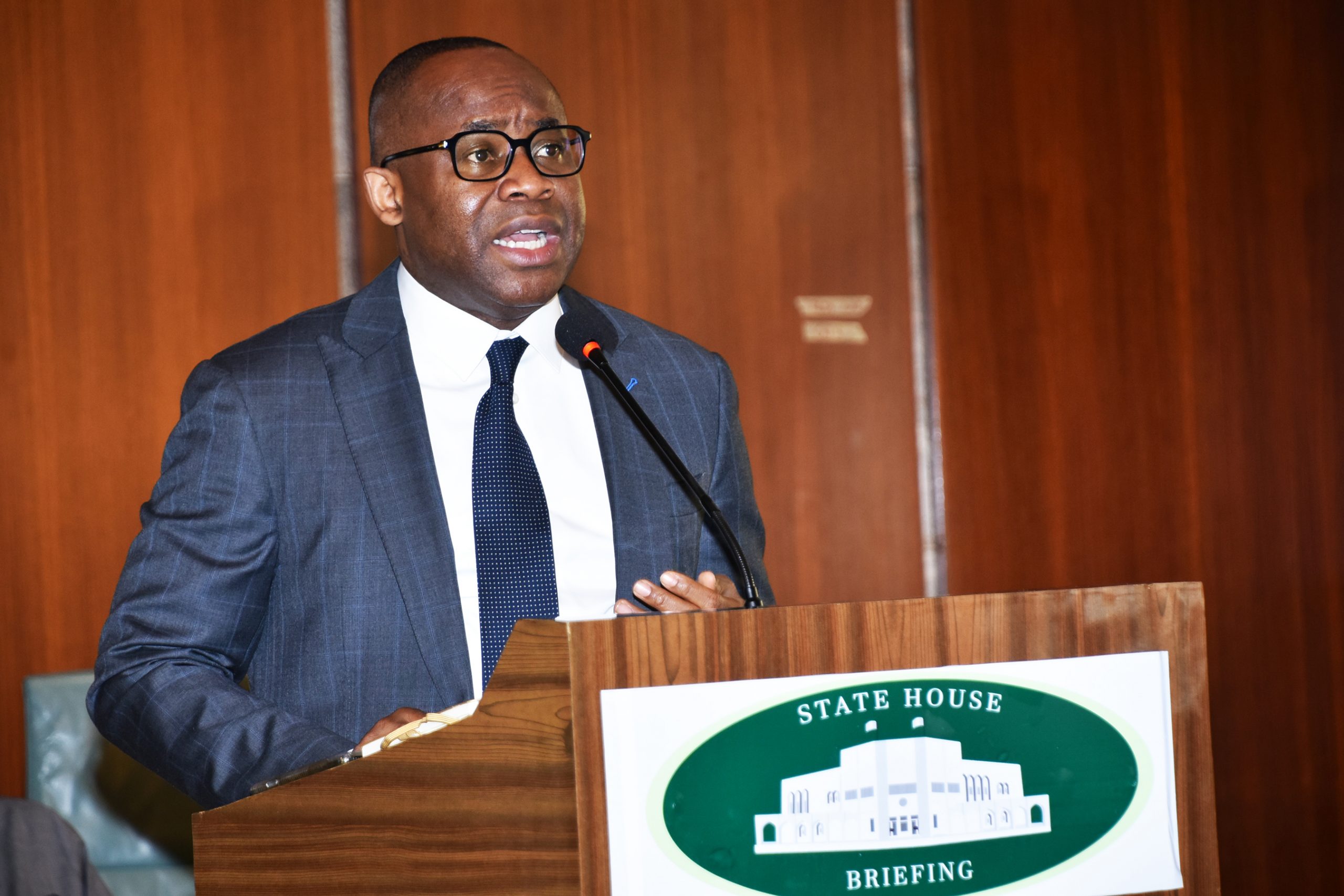Business
CBN Releases N756bn To Over 3m Farmers To Boost Food Security

The Central Bank of Nigeria (CBN), says it has released the sum of N756.51 billion to 3,734,938 small holder farmers, cultivating 4.6 million hectares of land, to boost the Federal Government’s food security initiative.
Mr Godwin Emefiele, the CBN Governor, made this known while presenting a communiqué from the bank’s recently held, 280th meeting of its Monetary Policy Committee (MPC).
Emefiele said that N120.24 billion of the sum was extended for the 2021 wet season to 627,051 farmers for 847,484 hectares of land, under the Anchor Borrowers’ Programme (ABP).
“The sum of N121.57 billion was disbursed to 32,617 beneficiaries.
“For the Targeted Credit Facility (TCF), N318.17 billion was released to 679,422 beneficiaries, comprising 572,189 households and 107,233 Small and Medium Scale Enterprises (SMEs),’’ he said.
Emefiele revealed that the apex bank also expended huge sums in its youth investment scheme, to empower Nigerian youths, and to reduce unemployment by providing to the creative sector and Information Technology.
“Under the National Youth Investment Fund (NYIF), the Bank released N3.0 billion to 7,057 beneficiaries, of which 4,411 were individuals and 2,646 SMEs.
“Under the Creative Industry Financing Initiative (CIFI), N3.22 billion was disbursed to 356 5 beneficiaries across movie production, movie distribution, software development, fashion, and IT verticals,’’ he said.
The CBN Governor also revealed that the apex bank had invested close to N1trillion to boost the real sector of the economy, covering 251 real sector projects.
He said that the bank’s intervention also spanned health sector support initiatives and electricity distribution.
“Under the N1.0 trillion Real Sector Facility, the Bank released N923.41 billion to 251 real sector projects, of which 87 were in light manufacturing, 40 in agro-based industry, 32 in services and 11 in mining.
“On the N100 billion, Healthcare Sector Intervention Facility (HSIF), N98.41 billion was disbursed for 103 health care projects, of which, 26 are pharmaceuticals and 77 are in the hospital services.
“Similarly, the sum of N232.54 million was disbursed to five beneficiaries under the CBN Healthcare Sector Research and Development Intervention (Grant) Scheme (HSRDIS) for the development of testing kits and devices for COVID-19 and Lassa Fever.
“On the National Mass Metering Programme (NMMP), N36.04 billion was disbursed to 17 Meter Asset Providers to nine Distribution Companies (DisCos), for the procurement and installation of 657,562 electricity meters,’’ Emefiele said.
Business
Agency Gives Insight Into Its Inspection, Monitoring Operations

Business
BVN Enrolments Rise 6% To 67.8m In 2025 — NIBSS

The Nigeria Inter-Bank Settlement System (NIBSS) has said that Bank Verification Number (BVN) enrolments rose by 6.8 per cent year-on-year to 67.8 million as at December 2025, up from 63.5 million recorded in the corresponding period of 2024.
In a statement published on its website, NIBSS attributed the growth to stronger policy enforcement by the Central Bank of Nigeria (CBN) and the expansion of diaspora enrolment initiatives.
NIBSS noted that the expansion reinforces the BVN system’s central role in Nigeria’s financial inclusion drive and digital identity framework.
Another major driver, the statement said, was the rollout of the Non-Resident Bank Verification Number (NRBVN) initiative, which allows Nigerians in the diaspora to obtain a BVN remotely without physical presence in the country.
A five-year analysis by NIBSS showed consistent growth in BVN enrolments, rising from 51.9 million in 2021 to 56.0 million in 2022, 60.1 million in 2023, 63.5 million in 2024 and 67.8 million by December 2025. The steady increase reflects stronger compliance with biometric identity requirements and improved coverage of the national banking identity system.
However, NIBSS noted that BVN enrolments still lag the total number of active bank accounts, which exceeded 320 million as of March 2025.
The gap, it explained, is largely due to multiple bank accounts linked to single BVNs, as well as customers yet to complete enrolment, despite the progress recorded.
Business
AFAN Unveils Plans To Boost Food Production In 2026
-

 Politics4 days ago
Politics4 days agoEFCC Alleges Blackmail Plot By Opposition Politicians
-
Business4 days ago
AFAN Unveils Plans To Boost Food Production In 2026
-

 Sports4 days ago
Sports4 days agoJ And T Dynasty Set To Move Players To Europe
-
Business4 days ago
Industrialism, Agriculture To End Food Imports, ex-AfDB Adviser Tells FG
-
Politics4 days ago
Datti Baba-Ahmed Reaffirms Loyalty To LP, Forecloses Joining ADC
-
Politics4 days ago
Bayelsa APC Endorses Tinubu For Second Term
-
Business4 days ago
Cashew Industry Can Generate $10bn Annually- Association
-

 Entertainment4 days ago
Entertainment4 days agoAdekunle Gold, Simi Welcome Twin Babies

